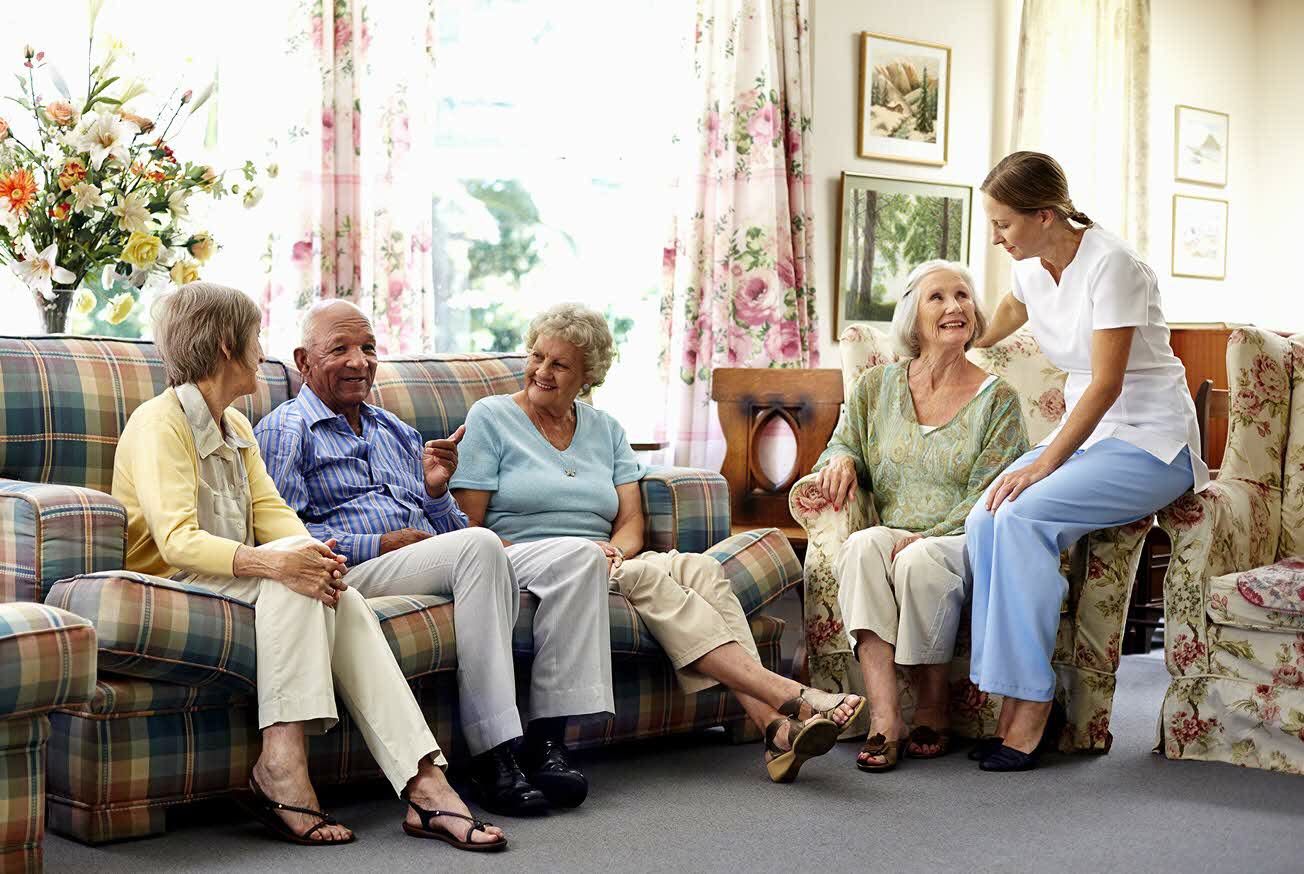Blog
Creating a Hearing-Healthy Home for Seniors

Home care can help aging seniors mitigate and deal with increasing hearing loss.
It’s normal to have some hearing loss as we get older. However, significant hearing loss can have a major negative influence on seniors’ day-to-day activities, making it harder for them to interact with others, enjoy life, and remain alert to things such as doorbells or alarms. Fortunately, there are a number of easy ways to make a house more conducive to hearing. Loved ones and home care providers can work together to make these crucial adjustments to help seniors with hearing loss live more securely and comfortably.
Focus on Alerts Systems That Have Visual Components
Installing visual alert systems is one of the first steps in making a house more accessible for someone with hearing loss. These systems employ lights to signal when certain sounds are activated, like:
- Doorbells: Loved ones can switch out the old doorbell for one that flashes a light when it’s pressed.
- Phones: Whether seniors are using a landline or cell phone, loved ones can research the best one for their needs. Things to look for are phones that have integrated flashing light alert systems for incoming calls.
- Smoke and Carbon Monoxide Detectors: Modern smoke and carbon monoxide detectors emit vibrations and strobe lights in addition to sound to ensure seniors with hearing issues are alerted to unsafe conditions.
- Alarm Clocks: To guarantee prompt waking, it’s important to choose alarm clocks that include flashing lights.
Improving Communication for Seniors with Hearing Issues
It’s critical that seniors with hearing loss are able to communicate clearly. Of course, with home care by their side, they gain a valuable resource who learns their routines and needs. However, when seniors need additional communication assistance, the following devices might help:
- Amplified Phones: These phones boost the caller’s volume and frequently have a tone control feature to improve clarity.
- Phones with Captions: These phones make it simpler to follow along by providing text subtitles of the conversation in real time.
- Video Calling: With tablets or smartphones, lipreading and visual signals are possible during video chats, which can greatly improve communication.
- Hearing Aids: Helping seniors get comfortable with their hearing aids is another area where home care providers can assist. They’re able to encourage seniors to not only wear these devices but also to bring up any concerns they might have with their doctor.
Boost Visibility and Lighting
It might seem odd to discuss improving lighting for the hearing impaired, but good lighting can make a big difference if they rely on lipreading and visual cues. Loved ones should ensure bright, adjustable lighting throughout the home to lessen glare and shadows. Also, it’s a good idea to add task lighting for reading, watching television, or working in the kitchen.
Incorporate Smart Devices
In order to preserve their independence and peace of mind, loved ones might also consider making the following safety modifications:
- Smart Home Devices: Make use of visual interfaces to operate locks, lights, and other appliances with smart home technologies.
- Security Systems: Select security systems that have cameras that can provide live video and visual warnings.
- Wearable Devices: Talk with seniors about wearable devices that can provide support and care in the event of an emergency.
A combination of modifications and support go into making a house suitable for seniors with hearing loss. Loved ones and home care services can help seniors maintain their independence, increase their safety, and improve their quality of life by implementing the abovementioned changes.
If you or an aging loved one are considering Home Care in Natchez, MS, please contact the At Home Care staff Today! (800) 218-3509
At Home Care is a Top Provider of Senior Home Care in Port Gibson, MS, and throughout the State of MS. Our service areas include Hattiesburg, Brookhaven, Gulfport, Natchez, Gloster, McComb, Meridian, Laurel, Indianola, Tunica, Jackson and surrounding areas.
Sources:
- https://www.nia.nih.gov/health/hearing-and-hearing-loss/hearing-loss-common-problem-older-adults#devices
- https://hearingconsultantsinc.com/blog/creating-a-hearing-loss-friendly-home-tips-for-seniors-with-hearing-loss/
- https://reviewed.usatoday.com/home-outdoors/features/easy-home-hacks-help-people-age-related-hearing-loss
